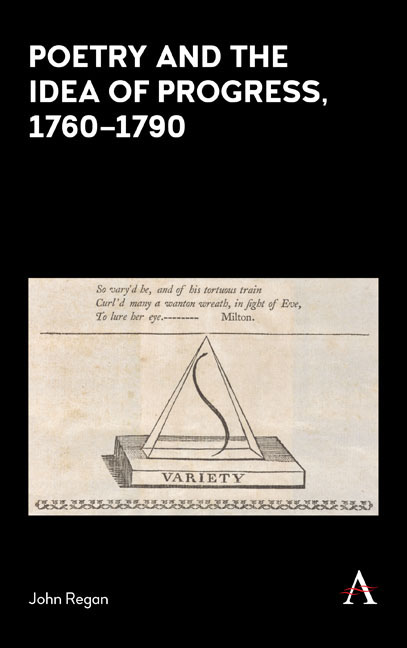Book contents
- Frontmatter
- Contents
- List of Figures
- Acknowledgements
- Introduction
- 1 Progress by Prescription
- 2 Thomas Sheridan and the Divine Harmony of Progress
- 3 ‘There Is a Natural Propensity in the Human Mind to Apply Number and Measure to Every Thing We Hear’: Monboddo, Steele and Prosody as Rhythm
- 4 ‘[C]ut into, distorted, twisted’: Thomas Percy, Editing and the Idea of Progress
- 5 ‘Manners’ and ‘Marked Prosody’: Hugh Blair and Henry Home, Lord Kames
- Afterword: Rude Manners, ‘Stately’ Measures: Byron and the Idea of Progress in the New Century
- Conclusion
- Notes
- Bibliography
- Index
5 - ‘Manners’ and ‘Marked Prosody’: Hugh Blair and Henry Home, Lord Kames
Published online by Cambridge University Press: 21 June 2018
- Frontmatter
- Contents
- List of Figures
- Acknowledgements
- Introduction
- 1 Progress by Prescription
- 2 Thomas Sheridan and the Divine Harmony of Progress
- 3 ‘There Is a Natural Propensity in the Human Mind to Apply Number and Measure to Every Thing We Hear’: Monboddo, Steele and Prosody as Rhythm
- 4 ‘[C]ut into, distorted, twisted’: Thomas Percy, Editing and the Idea of Progress
- 5 ‘Manners’ and ‘Marked Prosody’: Hugh Blair and Henry Home, Lord Kames
- Afterword: Rude Manners, ‘Stately’ Measures: Byron and the Idea of Progress in the New Century
- Conclusion
- Notes
- Bibliography
- Index
Summary
When more enlarged communication became requisite, and names began to be applied to objects, how can we suppose men to have proceeded in this application of names, or invention of words? Certainly, by imitating, as much as they could, the nature of the object which they named, by the sound of the name which they gave to it. As a painter who would represent grass, must make use of a green colour, so in the infancy of language, one giving a name to any thing harsh or boisterous, would of course employ a harsh or boisterous sound. He could not act otherwise, if he desired to excite in the hearer the idea of that object which he wished to name.
In becoming embroiled in the period's great scandal of literary authenticity, Hugh Blair and Henry Home, Lord Kames developed a bifurcated way of thinking about the progress of human ‘manners’. The concept is commonplace in eighteenth-century discussions of the development of man to civilization, and the publication of the Ossian poetry around 1760 was an occasion for both men to articulate the duality at its core. On one hand, the word was taken to refer to the behaviour, cultural practices and proclivities of humankind at a given point in time. In the case of Ossian, this was around the third century. On the other hand ‘manners’ referred to the poetic language within which these actions are described. Given the controversy over the historical authenticity of the Ossian poetry, it is not surprising that some noted a clear disjuncture between these two ideas: between the antiquity being depicted and the modernity of the poetic style. Blair, believing in the authenticity of Ossian as ancient epic poetry, sought to demonstrate that no such disjuncture existed. In the first meaning of the word, in which ‘manners’ designated behaviour and ritual, he understood the word to refer to whatever is susceptible to historical determination, progress and decline. By contrast, the poetic (and more specifically, prosodic) ‘manners’ of this verse, for Blair, a strongly ahistorical valence. This is because Blair maintains that the Ossian verse emerged from the earliest forms of primitive gestural communication, and that it therefore retains an immutable ‘perspicuity’ that is not susceptible to the vicissitudes of time.
- Type
- Chapter
- Information
- Poetry and the Idea of Progress, 1760 , pp. 125 - 146Publisher: Anthem PressPrint publication year: 2018



